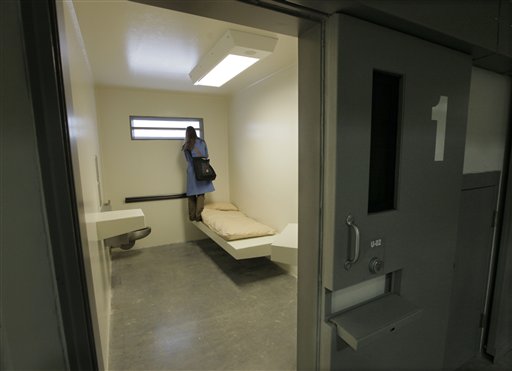In Saxbe v. Washington Post Co., 417 U.S. 843 (1974), which was decided the same day as Pell v. Procunier, the Supreme Court established that the press has no general First Amendment right to interview specific prison inmates.
The case involved a challenge by The Washington Post and one of its reporters to a federal ban on such interviews. The newspaper contended that the blanket ban on press-prisoner interviews infringed on the press’s ability to gather news and report on important issues for the public. Both a federal district court and federal appeals court sided with the newspaper, agreeing that the ban violated the First Amendment.
Supreme Court said press access to prisons not protected by First Amendment
On appeal, the Supreme Court rejected the First Amendment claim and reversed 5-4. Writing for the majority, Justice Potter Stewart, who also authored the Court’s decisions in Pell and in Branzburg v. Hayes (1972), determined that this case was “constitutionally indistinguishable” from Pell, in which the Court had upheld a similar California policy banning press-prisoner interviews.
In Pell, the Court had written that “newsmen have no constitutional right of access to prisons or their inmates beyond that afforded the general public.”
Justice Powell argued First Amendment has role of preserving public discussion of government
Justice Lewis F. Powell Jr. wrote a dissent, pointing out that the blanket ban “precludes accurate and effective reporting on prison conditions and inmate grievances.”
He rejected the majority’s analysis that there was no constitutional concern because members of the press were treated like the general public. He explained that “official restraints on access to news sources, even though not directed solely at the press, may so undermine the function of the First Amendment.” He also believed the case implicated more than the press’s First Amendment rights: “what is at stake here is the societal function of the First Amendment in preserving free public discussion of governmental affairs.”
The majority opinions in Saxbe and Pell led the Court to hold a few years later in Houchins v. KQED (1978) that the First Amendment does not provide a general right of access to a county jail and that the openness of penal institutions is a matter for the legislative branch.
David L. Hudson, Jr. is a law professor at Belmont who publishes widely on First Amendment topics. He is the author of a 12-lecture audio course on the First Amendment entitled Freedom of Speech: Understanding the First Amendment (Now You Know Media, 2018). He also is the author of many First Amendment books, including The First Amendment: Freedom of Speech (Thomson Reuters, 2012) and Freedom of Speech: Documents Decoded (ABC-CLIO, 2017). This article was originally published in 2009.

